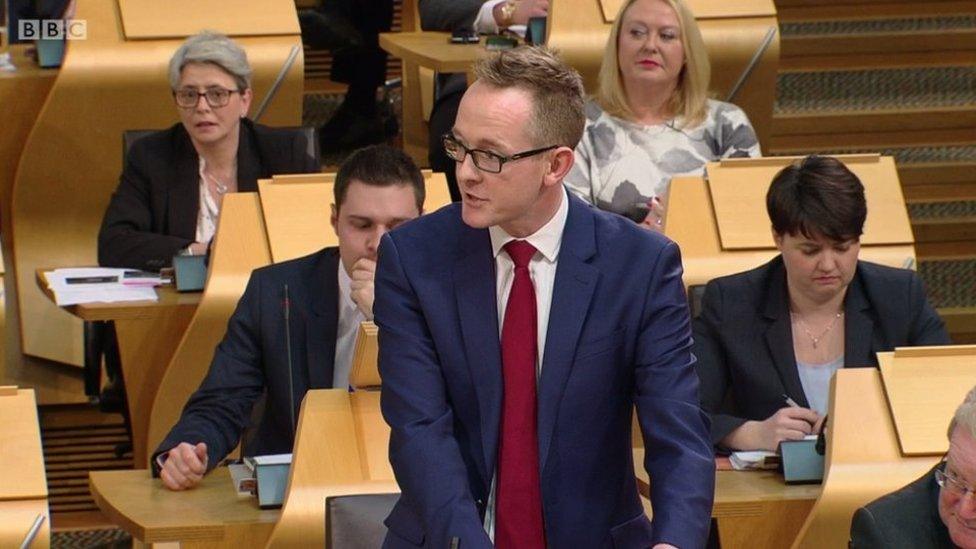Election 2017: The area of Scotland where two votes are taking place
- Published
Voters in one part of Scotland will be choosing their MSP as well as their MP on 8 June. Here's all you need to know about the by-election in Ettrick, Roxburgh and Berwickshire.
Why two elections?
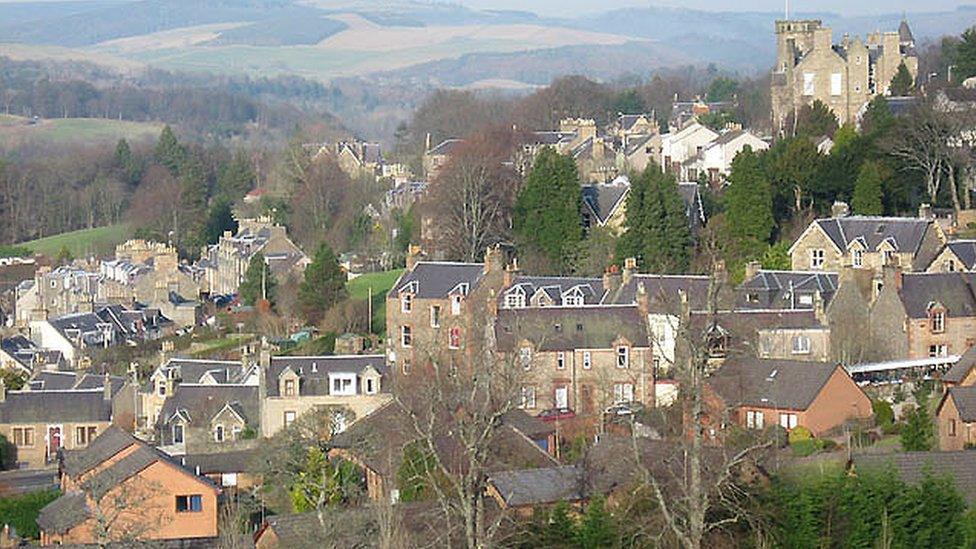
The seat takes in Borders settlements including Selkirk, Hawick and Kelso
It's risked being lost amid the hubbub of a general election, but alongside a new crop of MPs, a member will be elected to the Scottish Parliament on 8 June.
The by-election in Ettrick, Roxburgh and Berwickshire is part of a sort of political domino effect.
It was sparked by the resignation of Conservative John Lamont, who is fighting for the corresponding Westminster constituency (Berwickshire, Roxburgh and Selkirk) on the same day...
fellow Tory MSP Rachael Hamilton then resigned her list seat to fight for the Holyrood constituency...
which could in turn trigger a Border Council by-election, after Michelle Ballantyne moved to take Ms Hamilton's place.
The seat is one of nine constituencies in the south of Scotland region. It takes in Borders settlements including Kelso, Selkirk, Jedburgh and Hawick.
The seat was formerly a Conservative/Lib Dem marginal, but has in recent elections become more commonly a contest between the Tories and the SNP.
Under previous boundaries, as Roxburgh and Berwickshire, it was won by Lib Dem Euan Robson in 1999 and 2003, with the Conservatives in second place each of those years.
Mr Lamont then dethroned Mr Robson in 2007, and when he held the seat in 2011 and 2016 it was with the SNP's Paul Wheelhouse who came second.
The Tory majority has also grown steadily over the last three contests, up to 7,736 votes (or 23.4%) in 2016.

All-women contest
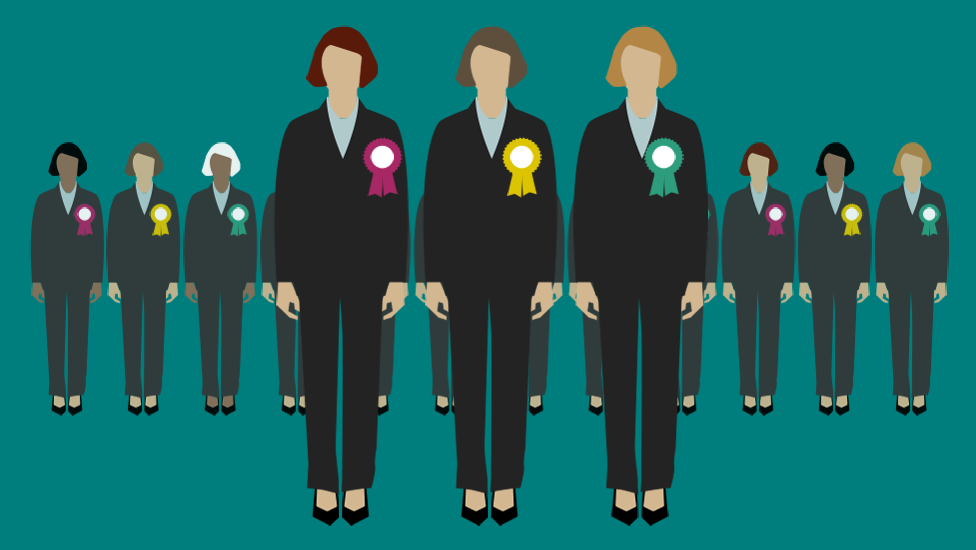
More than 7.5m people across the UK will not have the choice of voting for a woman on 8 June
One thing we already know about the by-election - a woman will be elected.
All four candidates on the ballot paper are female - something which has only happened twice in the history of the Scottish Parliament.
It happened once in the 2007, (Edinburgh Central), and once in 2016, (Hamilton, Larkhall and Stonehouse). Somewhat fittingly, the MSP elected in the latter contest - Christina McKelvie - is now convener of Holyrood's equalities committee.
By contrast, there were 11 seats in 2016 alone which had no women at all on the ballot.
The picture is much the same at Westminster. In the general election taking place on the same day, Glasgow Central is the only constituency in the whole of the UK where only women are standing. There are 104 where no women at all are on the ballot; 7.5m voters will only be able to vote for a man.

The candidates
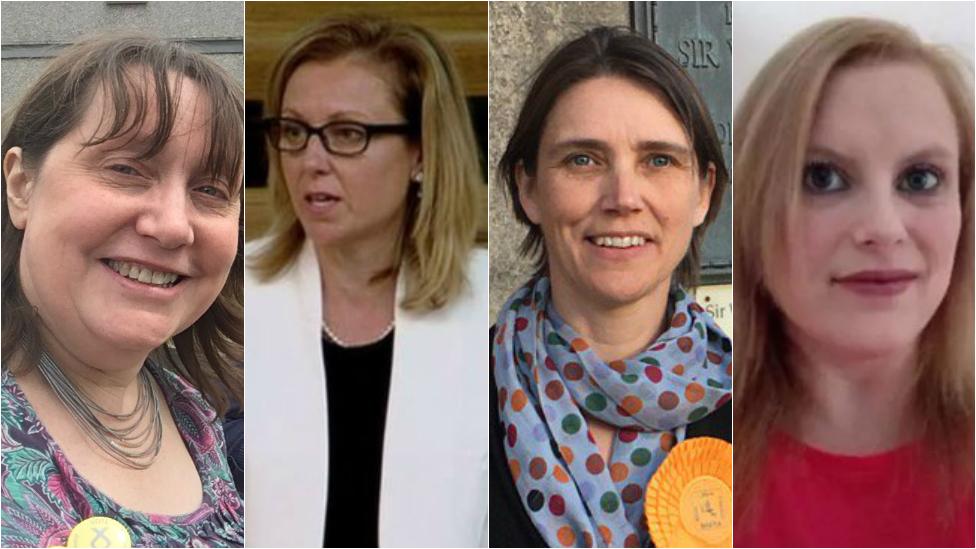
From left: Gail Hendry, Rachael Hamilton, Catriona Bhatia and Sally Prentice
Rachael Hamilton is bidding to keep the seat Tory blue. She was elected to Holyrood on the South Scotland list in 2016, but has resigned that seat in a bid to win a constituency one.
Before winning a seat of her own, she worked on Mr Lamont's campaigns in 2007 and 2011, and was a team leader in the Better Together campaign in the 2014 independence referendum. She and her husband own a hotel near Melrose.
Gail Hendry is hoping to take the seat for the SNP, having run Calum Kerr's successful campaign for the local Westminster seat in 2015.
A pillar of the local SNP operation, she is chairwoman of Hawick and District SNP and convener of the Ettrick, Roxburgh and Selkirk constituency association. You might also have heard of her brother, who has some clout in the SNP - one Alex Salmond.
Lib Dem candidate Catriona Bhatia is also steeped in local politics, having served several terms on Borders Council, including five years as deputy leader.
She also has a rather famous relative, being daughter of former Liberal Party leader, MSP and Holyrood Presiding Officer David Steel. Keeping it in the family even further, her daughter, Caledonia, stood (unsuccessfully) for Borders Council in May.
Labour candidate Sally Prentice also stood for the council, in the Kelso and District ward, but was not elected.
The mother-of-two lives in Duns and joined the party in 2015.

Who gets to vote?
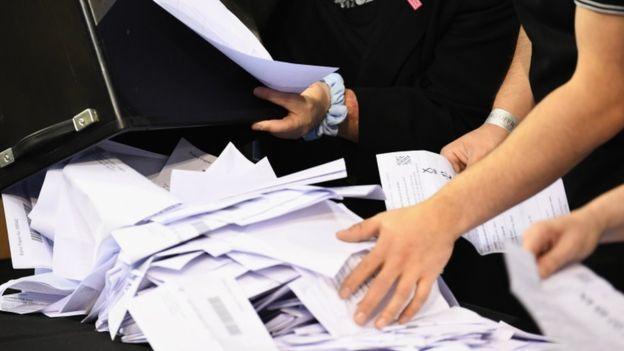
The two elections will be run simultaneously
Two previous by-elections have coincided with a Westminster election - both in 2001. Both seats were held comfortably, and fell in line with the local general election result.
The Conservatives are hoping this double-victory pattern will be repeated on 8 June - Berwickshire, Roxburgh and Selkirk is the most marginal seat in Scotland, and a key general election target for the Tories.
Both elections will use the first-past-the-post system, where voters mark a single choice with a cross, but they have different franchises. So 16 and 17 year olds and EU citizens resident in Scotland will be able to vote for their MSP, but not their MP.
The local council has issued detailed advice, external for voters, including a plea to get postal votes sent in as early as possible.
The elections will take place simultaneously, in the same polling stations. Ballot papers and boxes will be colour-coordinated to make sure no votes end up landing in the wrong place, to make sure the counting process isn't delayed.

By-election history
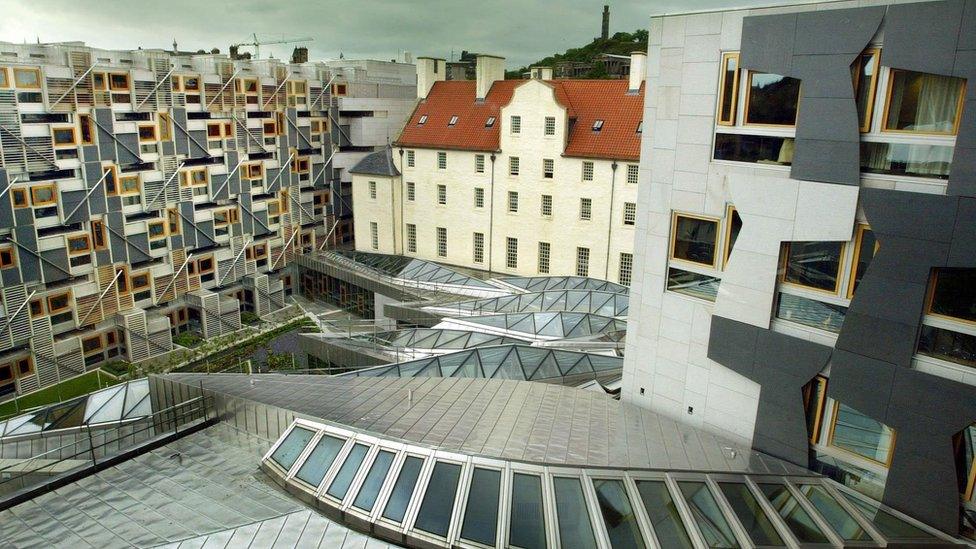
Seats have only changed hands in two previous Holyrood by-elections
As mentioned above, previous by-elections which coincided with general elections have produced the same result in both contests.
Ms Hamilton will be further encouraged by Holyrood's wider history of by-elections; out of nine contests, seats changed hands on only two occasions. And in both votes, the majority being defended was far smaller than that the Tories hold in Ettrick, Roxburgh and Berwickshire.
Labour gained Dunfermline from the SNP in 2013, after Bill Walker (who was by then sitting as an independent) was convicted of assault and subsequently jailed.
The SNP were defending a majority of 590 votes from 2011, but that swung to a Labour majority of 2,873. The seat then turned yellow again in 2016.
The other seat which changed hands was Ayr, in 2000 - and that was an even slimmer majority, with Labour defending a lead of just 25 votes after Ian Welsh resigned to spend more time with his family.
John Scott won the ensuing contest with a majority of 3,344, and holds the seat to this day.
- Published3 May 2017
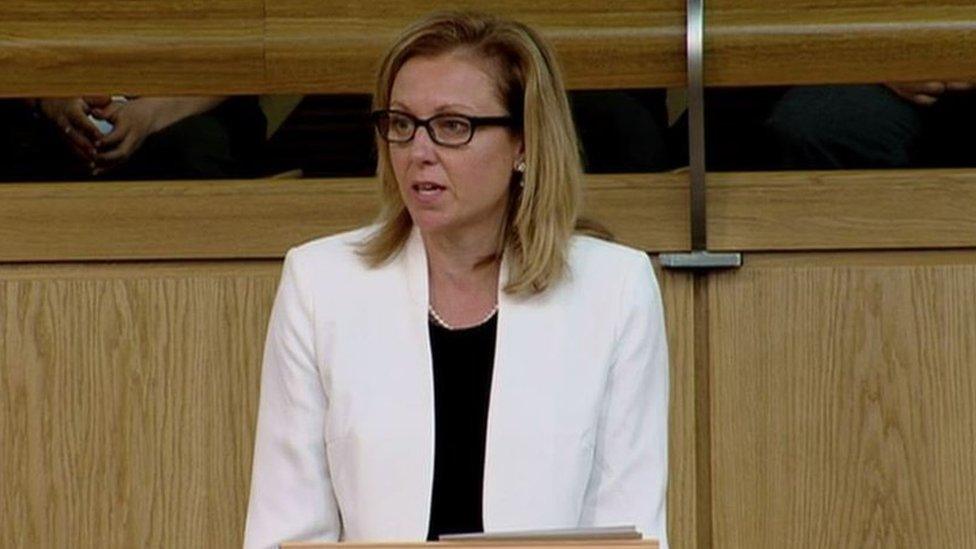
- Published25 April 2017
